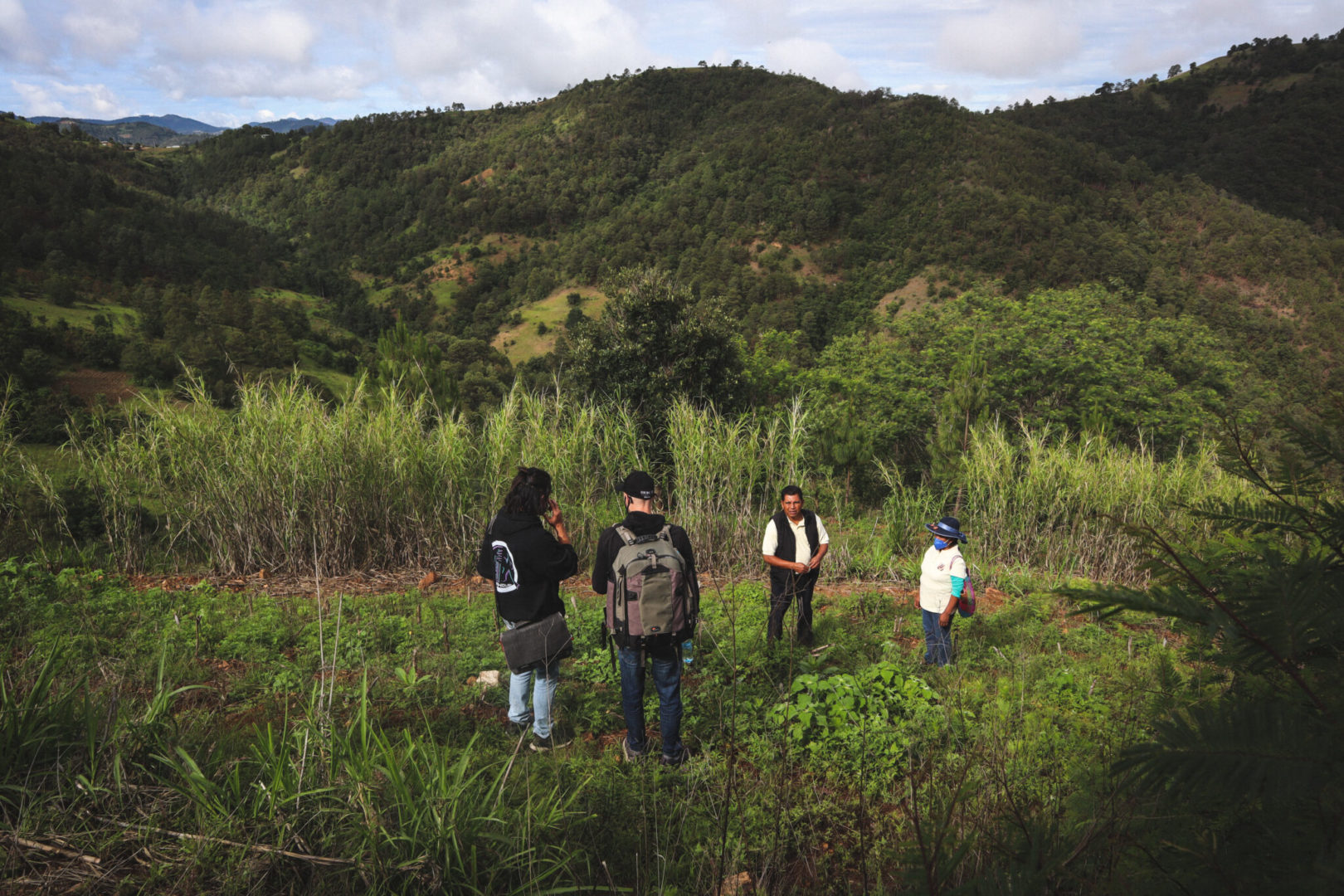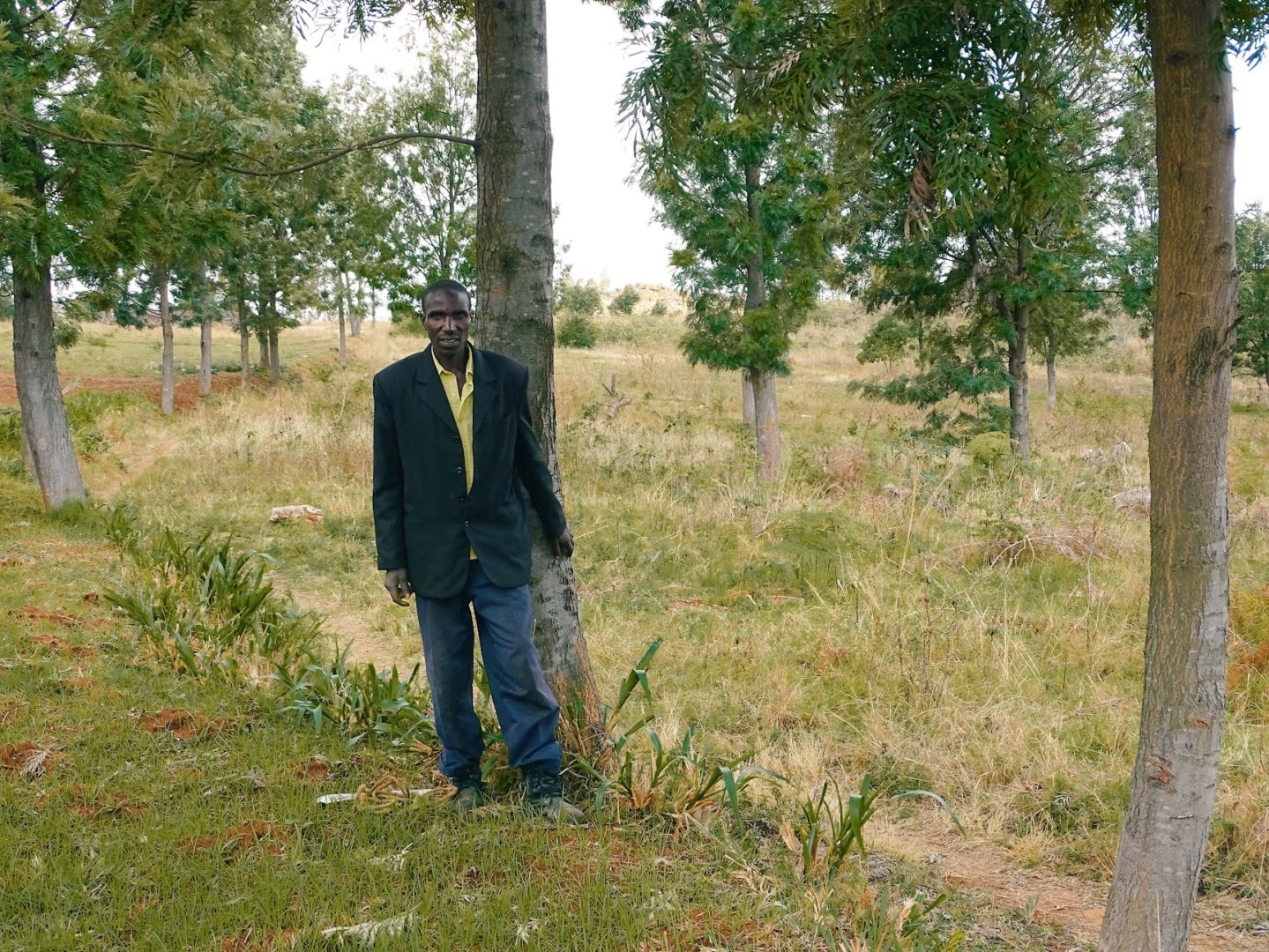The Good News of Jesus is Good News for all of creation.
One of the core ideas underlying the practice of ecological discipleship (eco discipleship), is drawing closer to God through study and engagement in the natural world. Musician Audrey Assad expresses, “I used to laugh at people who called nature a church. It mystified me. I understand now; the trees are priests, too, and they require no blood for their rituals. The forests are carpeted with healing organisms that funnel nourishment to the sick plants among them.”
As proponents of eco discipleship, we talk often about the value and importance of learning from creation and connecting with God through creation. But how does one do that at a practical level? Is it as simple as looking at a tree and noting all of its positive attributes that could also be said about God? For some, yes. But this is far from the only way. Here are five few simple ideas, practices, and approaches to learning about God through creation.
Appreciation: Spend focused time around creation, noting the way it reflects the goodness of God
Throughout the story of creation, God punctuates each act of his artistry by stopping to admire its goodness. Taking a moment to pause and absorb the goodness of creation―both its aesthetic beauty and its robust creative energy―is important to God, as noted throughout Scripture. Let’s take time to do the same. This can remind us of how special our natural world is, and motivate us to treat it with gentleness and generosity. Beyond that, it can stir our hearts toward worship and inspire us to celebrate that we too, are part of the wonder of creation.
It doesn’t take a scientific background to understand that time spent in natural settings is energizing and inspiring. Yet science continues to validate our experiences. A recent study in the United Kingdom noted that just two hours each week around nature resulted in stronger physical and mental health outcomes. A study in Denmark showed better satisfaction in adulthood among children who grew up with access to parks.
One of the easiest ways to begin the practice of eco discipleship is to simply make the time for it.


Observation: Love God with all your mind by engaging your intellect around the mysteries of nature
Scientific discoveries throughout human history, especially recent history, have given us a better understanding of how our world operates. In addition, discoveries have extended our lifespan, improved our diet, and connected people through the power of technology. Yet there is still much to learn.
Science is often seen as serious, yet it is also playful, fueled by curiosity and a desire to explore. In some ways, this is much like a healthy engagement of faith.
George Washington Carver, a pioneer of regenerative agriculture, had an especially vibrant way of describing how his scientific pursuits were a spiritual practice. “I love to think of nature as an unlimited broadcasting station, through which God speaks to us every hour, if we will only tune in,” he explained.
Echoing George Washington Carver’s sentiments is Sarah Wolf, an Oregon-based marine microbiologist. “Increasing exposure and access to research science sets my soul on fire! I didn’t know about research careers growing up or how scientists can use discovery and curiosity as a way of getting to know the Lord,” she explained to Biologos, an online platform dedicated to worship through scientific enrichment.
Of course, one doesn’t need to be a scientist or an agricultural pioneer to share this experience. Listen to a young child start talking about his or her favorite animals and you might start to get a sense of how the opportunity to worship through wonder can reach people at any level of education or experience.
Education: Use Scripture to guide your understanding of what nature teaches us about God
Some of the earliest church teachers often talked about the relationship between Scripture and creation and how, together, they could provide disciples with a multidimensional presentation of God’s character and attributes.
Passages that strengthen our understanding of God through the created world stretch across the entirety of Scripture. The Bible begins and ends with descriptions of a thriving garden, and a vibrant city built around a flowing river. Its bookends show how the narrative of humanity throughout the Gospel is marked by the restoration of the original beauty God created.
Throughout other parts of the Bible, nature is often used as a valuable teaching tool. The Psalms frequently draw upon ecological metaphors, comparing a person of good character to a strong tree, or God’s protectiveness to that of a mothering bird. The New Testament Gospels are full of Jesus using parables of farmers and fieldworkers to demonstrate important principles- a reminder that the original audience of the New Testament were largely rural populations with modest, largely agricultural lifestyles. At several instances Jesus directly calls us to learn from specific natural items, like a sparrow or a flower in a field.
Books of Prophecy like Isaiah, as well as historical books like Exodus, often use ecological health as a barometer or metaphor for a population’s spiritual condition. These passages can sometimes be more complex but also offer valuable insights.

Meditation: Consider using the backdrop of creation as you pray and meditate
In between big miracles, challenging sermons, and the events recorded in Scripture, Jesus frequently drew away from crowds in order to spend more deliberate time in prayer and meditation. In nearly all of these instances, he draws toward nature―sometimes the desert wilderness, sometimes a mountain, sometimes the sea. These retreats often led up to significant moments, including his display of power following a 40-day fast.
If these retreats into the wilderness were so valuable to Jesus’ work and ministry, how much more are we in need of time away from our usual distractions? Weekend retreats, or a morning prayer walk on a tree lined path or along a shore can help us refocus our minds and emotions toward God.
Cultivation: Practice compassion and generosity through the care of creation
Direct practices of eco discipleship, caring for creation―whether a forest, a backyard garden, a windowsill seed bed, or a farm―call for us to develop the skills of presence, nurture, and faithfulness, all desirable qualities in our spiritual lives.
Our first command as humans is to protect and serve the other living species that share our planet. From a theological perspective, this was a command given to us before the introduction of sin, signifying that there is value in caring for creation beyond avoiding death and decay. The opportunity to care for plant and animal life is a gift to us as humans.
While some of us may live in proximity to natural cycles and seasons, others are more insulated by technology and urbanization. The latter lifestyle can make it harder to routinely plant, garden, or cultivate in a hands-on way. However, we can extend a bit of effort, whether it’s through a backyard greenhouse, a community garden, or even choosing to walk and observe birds rather than drive. These efforts help us become more nurturing, patient, and caring, which are also great spiritual traits to develop.
In the Ethiopian Orthodox Church, caring for the land is so strongly connected with one's own spiritual development that the church has a longstanding tradition of protecting the forests that surround each of their church buildings. In many rural Ethiopian areas, patches of dense green circles emerge from the surrounding desert, indicating the presence of a church.
If you feel isolated from nature there are still ways for you to experience the benefits. One way is to listen to people who live in close proximity to the land. This includes smallholder farmers, rural populations, and indigenous communities. You can also become an advocate for an environmental issue. By protecting and healing the Earth, and supporting vulnerable people whose lives are connected to the land, we are doing work that brings us closer to God.
What a gift for us to be able to learn from creation! Part of Plant With Purpose’s mission is to promote eco discipleship in its international programs through Spiritual Renewal curricula. Learn more here.



















